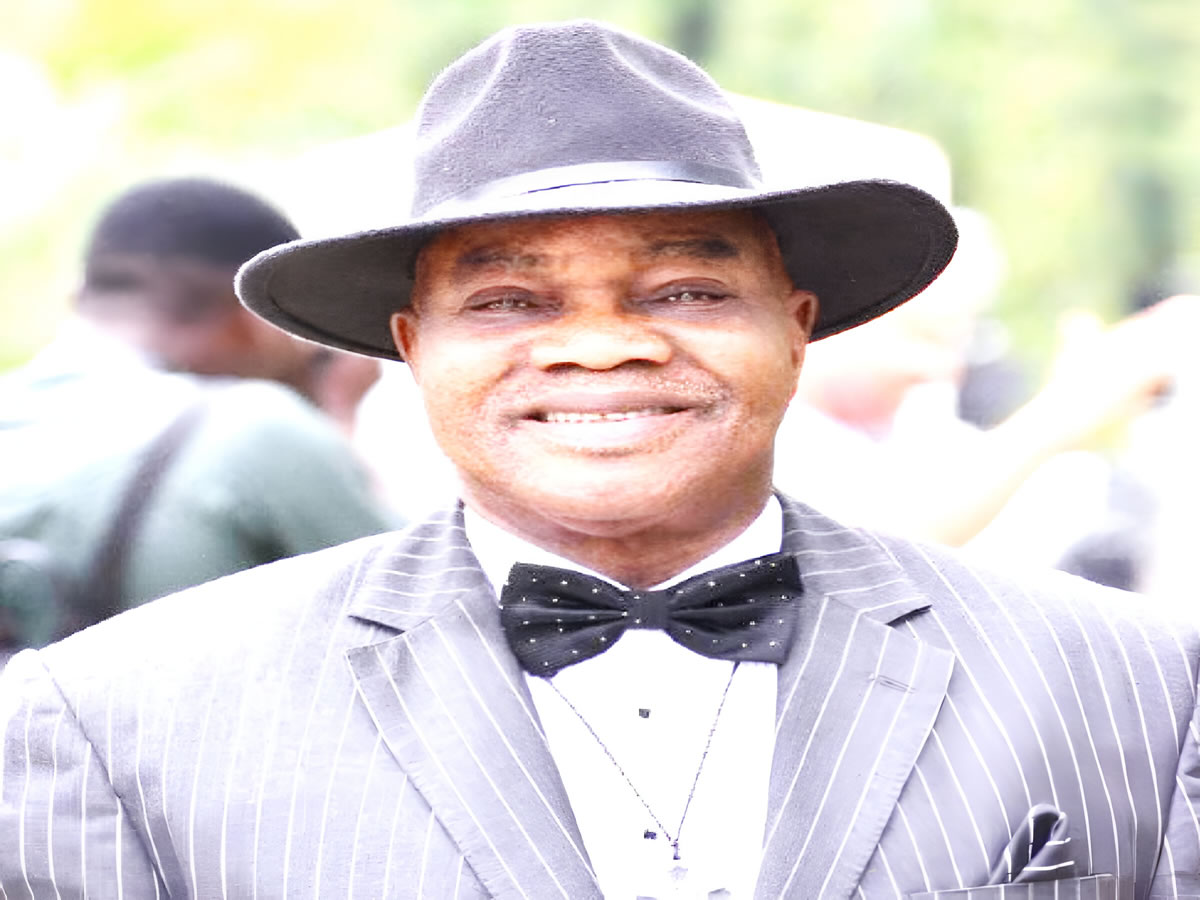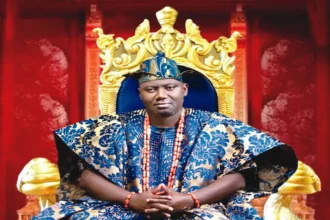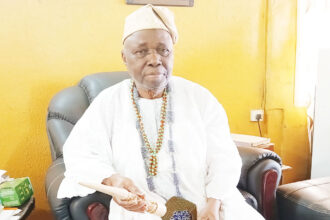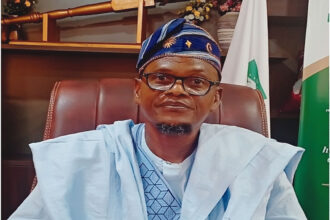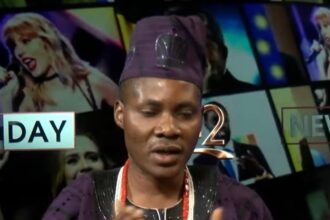Former Speaker of the Edo State House of Assembly and two-term member of the House of Representatives, Hon. Friday Itulah, is preparing to contest for the Edo Central Senatorial District seat left vacant following the election of Monday Okpebholo as the Edo State governor. In this interview by Abuja Bureau Chief, LEON USIGBE, he discusses the election and the controversy surrounding the image of the National Assembly.
You were in the House of Representatives for eight years.
Yes, in the sixth and seventh assemblies.
Why are you intent on returning to the National Assembly now?
Yes, as you rightly said, I was a member of the House of Representatives in the sixth and seventh assemblies—from 2007 to 2011 and then 2011 to 2015. Before then, I was Speaker of the Edo State House of Assembly, as you are aware. I was also a councillor at the Esan North-East Local Government Legislative Council.
Regarding the Senate, I want to go because I believe it’s the appropriate place for me at this point. The Senate, as created under Section 4 of the 1999 Constitution (as amended), is the upper chamber of the National Assembly, which comprises the Senate and the House of Representatives. Now, there is a vacancy in the Senate following the inauguration of the former occupant as governor of Edo State on November 12, 2024.
I strongly believe that given my experience in the National Assembly, going to the Senate would be like placing a round peg in a round hole. The rule book used in the House of Representatives is the same as that of the Senate. As you may know, by-elections don’t typically come with an orientation or training for the winners. Only someone who already understands the legislative process and protocols can hit the ground running. I see myself as that person – someone amply qualified to serve for the greater good of the senatorial district.
You are contesting on the platform of the Peoples Democratic Party (PDP). How confident are you about securing the party’s ticket?
What matters most is having a credible platform to contest the election. The PDP, being a nationally accepted political party, is a strong platform for me. As you are aware, Edo Central Senatorial District was traditionally a PDP stronghold until recently, when internal party misunderstandings allowed the opposition to win.
However, if you look at the performance of the parties in the September 21, 2024 election, the PDP still had the majority of the electorate’s support. This shows that the PDP remains solid on the ground in terms of followership. So, the chances of the PDP winning the by-election are very high. Like I said earlier, if not for the internal crisis in the PDP, the APC wouldn’t have won that seat.
I am confident—by God’s grace and all things being equal—that with my popularity and track record, I will secure the ticket. If you check my history, I have always won every election where I was nominated. I believe the party can win by fielding me.
How sure are you that you will clinch the party’s ticket?
Yes, you have to secure your party’s ticket through the internal selection process. I respect the other aspirants; it is their right to contest. But when you compare our records, I stand out as someone who has legislative experience and who has consistently earned the trust of the electorate. My previous mandates were not misplaced—I delivered results and actively represented my people at the National Assembly.
I believe the delegates and stakeholders know us—the three of us vying for the ticket—and they know who among us is best positioned to offer effective representation. I am confident that I will emerge as the PDP candidate and go on to win the by-election.
You mentioned the crisis within the PDP. Some members have defected to the ruling All Progressives Congress (APC) in Edo, even making the PDP a minority in the House of Assembly. What’s your take on that?
Well, it depends on the individual. Some politicians see political parties as just vehicles to achieve personal goals. Once they secure their position, they start weighing where the next opportunity might come from and some switch sides. But I can tell you that most of those who defected did so without the backing of the constituents who elected them. In Edo State, the majority of voters still see the PDP as their preferred party. This was evident in the last election.
Those who have defected made a personal choice—they have the right—but constitutionally, it’s a violation to leave the platform on which you were elected without just cause. I’m aware that the party is exploring legal options to have those seats declared vacant.
Frankly, I don’t think defection under these circumstances is the right thing to do. Once you’ve been elected on one platform, why jump ship midstream? It’s neither ethical nor democratic.
At the moment, many Nigerians have a low opinion of the National Assembly. Some see it as a rubber stamp, especially in light of how the emergency proclamation in Rivers State was passed. How do you respond to that perception, especially as someone seeking to return there?
We operate a system of separation of powers. The National Assembly, under Section 4 of the 1999 Constitution, is created to make laws. Subsection 1 states that the legislative powers of the federation are vested in the National Assembly—comprising the Senate and the House of Representatives. Subsection 2 says the Assembly shall make laws for the peace, order, and good governance of the federation or any part thereof.
The National Assembly is primarily a lawmaking body. Sometimes, certain issues are referred to them – such as the emergency proclamation you mentioned. I wouldn’t describe the National Assembly as a rubber stamp. I attend sessions from time to time and observe that they take matters seriously.
In any democracy, the majority has its way while the minority has its say. The National Assembly is not meant to be antagonistic to the executive. They are partners in progress – one makes laws, the other executes them. Some Nigerians expect constant confrontation between the two arms of government, but that’s not how it works.
Until you’re inside and understand the rationale behind certain decisions, it’s hard to judge. If, by God’s grace, I return to the National Assembly, I’ll do my part to uphold integrity, objectivity, and the interests of the people I represent.
Many Nigerians were upset that the proclamation was passed via a voice vote instead of a division. Should that process have been handled differently?
There are several legitimate ways for the presiding officer to determine the outcome of a vote—voice vote, headcount, or roll call. If the presiding officer is satisfied with the voice vote and believes it reflects the majority, that’s procedurally acceptable.
I recall that during a session in the House of Representatives, a similar concern was raised. The Speaker responded that the register showed more than a two-thirds majority had been formed. Neither the Constitution nor the rule book mandates one specific method for every type of vote.
As journalists, you can investigate further by reviewing the attendance register to confirm whether a quorum was achieved. The important thing is that the required constitutional process was followed, and the decision was made as deemed appropriate by the Assembly.
On a broader note, how would you assess the performance of the current National Assembly, now that we’re nearly halfway through its tenure?
I would say they’re not doing badly. They’ve discharged their responsibilities reasonably well, though there is always room for improvement. So far, so good.
Do you have any final thoughts?
Not much, except to emphasise that we are still evolving in our democracy. We operate a federal system where the executive and legislature must collaborate – unlike in the parliamentary system where the Prime Minister emerges from the legislature.
We’re still learning. America, whose system we try to emulate, has over 200 years of democratic practice. Nigeria’s uninterrupted democratic experience only began in 1999. As we continue, we’ll get better. The system will continue to improve itself, and over time, we’ll get it right.
READ ALSO: Edo PDP loses another legislator to APC

